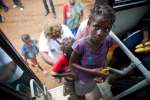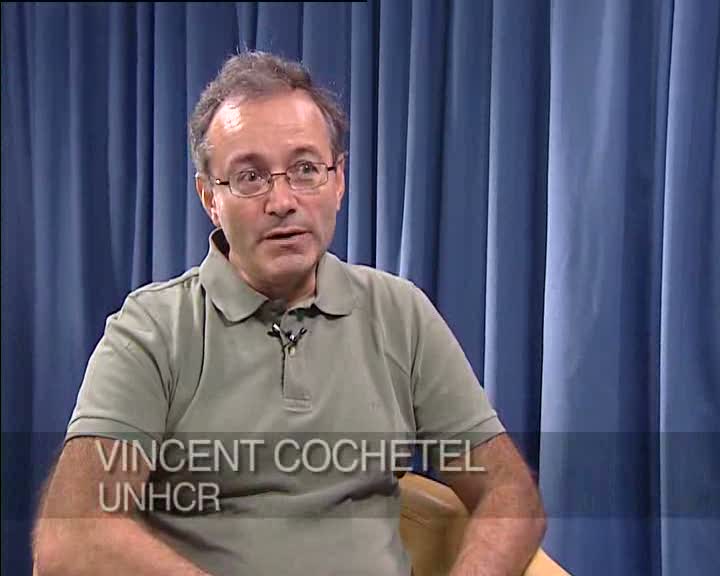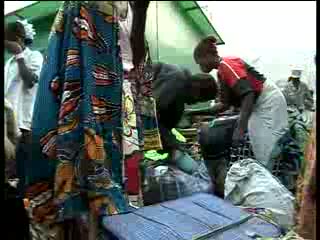- Text size
 |
|  |
|  |
| 
- Français
Angolan refugee successfully integrates in Russia
News Stories, 6 May 2013
MOSCOW, Russian Federation, May 5 (UNHCR) – Lema Dane was brought to Russia by his family as a one-year-old refugee, placed in an orphanage for six years, reclaimed by his mother and then left behind when she returned to Angola. He had a hard start to his life.
Dane, now 20 and studying to be an actor, has overcome formidable obstacles to stand as an example of a refugee who has successfully integrated into his new home.
He is one of approximately 500 refugees registered by UNHCR who have been staying in Russia since the 1990s. Over the years, UNHCR and its partners – in consultation with the Federal Migration Service of Russia – have provided social support and legal counselling to help them find long-term solutions and gradually switch from UNHCR-sponsored assistance to the state-run services.
Dane was only aged one when his parents brought him from Angola to Russia in 1994. His mother and father went through many difficulties in the new country and in 1997 Dane was put into an orphanage. He stayed there till 2003 when his mother took him back to live with her new husband in Moscow.
Soon a new sister, Prescillia, was born, but in 2006 their mother went to Luanda, supposedly to find a new place of residence for the family. She never returned and Dane remained in Russia with his stepfather and stepsister.
As a highly vulnerable case, Dane's life was closely followed by UNHCR. Social workers of the UN refugee agency regularly examined living conditions of the family, provided extra help for education and nutrition of the kids, and considered different options for a long-term durable solution.
Dane's fortune changed. With the support of UNHCR, Dane and his stepfather finally obtained legal status in Russia, which gave them a chance to work, study and fully integrate in the country.
Then in 2007 Dane won the lead role in the film "Cosmonaut's Grandson." directed by Russian actor and film-maker Andrei Panin. During the filming Dane got on well with all the actors.
"There was just one difficulty about that film – I had to play the role of a hooligan, and it made me feel uncomfortable in some episodes," said Dane.
He was well paid and also received a laptop computer for participating in the film. And he gained a dream – to become a professional actor.
UNHCR continued to monitor Dane's situation and intervened when necessary. In 2010 he was helped to get into school in Moscow to continue his studies in a friendly environment. The boy proved to be purposeful, motivated and disciplined. He studied well, and was especially interested in history and literature.
After classes, he joined with his friends to play football and to organize a theatre studio. And he continued to dream about studying dramatic art after secondary school.
"Dane's case shows that successful integration in Russia is possible even after frustrating periods of temporary solutions. Our work is to help authorities and civil society to improve legal and social avenues for integration of persons seeking asylum in Russia," said UNHCR Representative in the Russian Federation Gesche Karrenbrock.
"Through a comprehensive solutions strategy, UNHCR progressively pursues a positive shift in durable solutions. The integration of refugee kids like Dane will be of benefit to the host society that supported it," she added.
Last year, Dane finished secondary school. His dream is now nearing reality – he studies actor's art in the Culture College in the city of Chelyabinsk and after four years will get the dramatic actor's diploma.
When asked about his future, Dane says: "I am thinking about common things, probably, like everybody – about my own home and family. All is well."
By Ekaterina Myazdrikova in Moscow, Russian Federation


















































